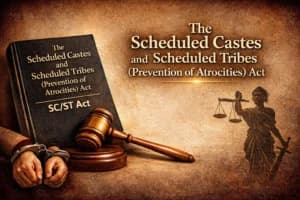In a significant ruling clarifying the scope of authority under the Maharashtra Mathadi, Hamal and Other Manual Workers (Regulation of Employment and Welfare) Act, 1969, the Nagpur Bench of the Bombay High Court has held that the Mathadi Board does not possess the power to review its own orders. The verdict came in a writ petition filed by Valsad District Co-operative Milk Producers Union Ltd. challenging a wage recovery order of over ₹14 lakh issued by the Nagpur and Wardha District Mathadi Board.
Background
The dispute traces back to 2008, when twelve Mathadi workers at the Vasudhara Dairy in Nagpur allegedly stopped work during production hours, prompting the employer to seek action through the Mathadi Board. The Board initially ruled that since the workers were not in employment at the relevant time, it could not act under Section 13 of the Mathadi Act, which deals with recovery of unpaid wages and other benefits.
The workers later approached the High Court, but their 2008 petition was withdrawn with liberty to pursue remedies under industrial law-something they never did. Instead, in 2010, they filed a fresh application before the Mathadi Board seeking reinstatement and back wages. That too was rejected in 2012.
Yet, despite these repeated adjudications, the Board reopened the case in 2014 through a resolution ordering a de novo inquiry. This led to a fresh order in July 2016, directing the employer to pay ₹14,53,052 in wages, plus a 30% levy and interest an order now struck down.
Court's Observations
The Division Bench of Justice Rajnish R. Vyas and Justice Anil S. Kilor minced no words in its criticism of the Board’s conduct.
"By passing the order dated 12 July 2016, the officer of the Board has virtually exercised power of review and re-written Section 13 of the Act of 1969," Justice Vyas observed in the judgment delivered on October 7, 2025.
The court noted that the power of review is not an inherent power and can only be exercised if expressly granted by statute.
"Neither the Act nor the scheme framed thereunder gives any authority or jurisdiction to the Board to review its earlier decision," the Bench added.
It was also pointed out that the workers, despite being granted liberty to approach industrial forums in 2010, failed to do so. Instead, they repeatedly attempted to reopen settled matters under Section 13-something the court described as "a striking example of exercising powers which are not conferred by the statute."
Decision
Allowing the petition, the Bench quashed the Board’s 2016 order that had imposed the wage liability. The court made it clear that the Board’s earlier findings, which became final after multiple rounds of litigation, could not be disturbed through an internal resolution.
However, in a balanced approach, the court also directed the Mathadi Board to consider whether the workers could be provided employment with any other registered employer, in keeping with its 2014 assurance to the court. The Bench ordered that this consideration be completed within four weeks of communication of the judgment.
The ruling reinforces a crucial administrative principle: no authority can review its own decision unless the law explicitly allows it. For hundreds of Mathadi Boards operating across Maharashtra, this decision now serves as a legal reminder to stay within statutory boundaries.















